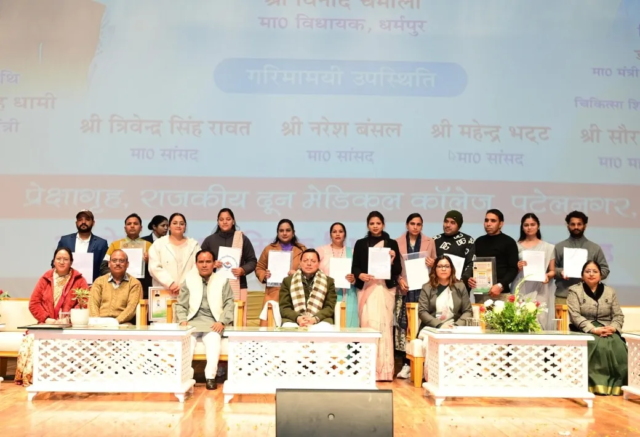Finance Commission Holds Meeting with The Ministry of Jal Shakti on Grant for Provision of Drinking Water & Sanitation Services
The Chairman, Shri N. K. Singh and Members of the 15th Finance Commission had a meeting with Shri Gajendra Singh, Minister of Jal Shakti and his team of officers on the issue of FC grants to Rural Local Bodies for provisions of drinking water & sanitation services .
The Terms of Reference of the Commission mandates it to recommend “the measures needed to augment the Consolidated FUND OF a State to supplement the resources of the Panchayats and Municipalities in the State on the basis of recommendations made by the Finance Commission of the State”. In this context the Finance Commission needed to understand whether the current experience of the submission of its report 2020-21 and its recommendations on grants for local bodies, was adequate enough to continue this type of grants for 2021-22 to 2025-26 – or there was requirement for improvement/ modification. The specific concerns of the Commission were that approximately 2.5 lakh Panchayati Raj Institutions which have common issues on Drinking Water Supply and Sanitation and where coordination was required between the Ministry of Panchayati Raj and the Ministry of Jal Shakti alongwith the States for effective implementation.
In this context the Ministry of Panchayati Raj and the Ministry of Jal Shakti had written a combined letter addressed to the States on 17th March, 2020 on the effective utilization of the 15th Finance Commission grants to rural bdoes for providing drinking water and sanitation services. The letter had highlighted that the 15th Finance Commission in its interim report for the year 2020-21, has identified water supply and sanitation as national priority areas for rural local bodies, and accordingly 50% of Rs. 60,750 crore i.e. Rs. 30,375 crore has been allocated as tied-grants to RLBs for (a) sanitation and maintenance of open-defecation free (ODF) status; and (b) supply of drinking water, rain water harvesting and water recycling. PRIs have to earmark one half of these tied grants for each of these two components. However, if any (Gram Panchayat has fully saturated the needs of one category, the particular GP can utilize the funds the other category. The letter had also requested the States to bring it to the notice of all the PRIs that while utilizing the 15th Finance Commission grants for water and sanitation, priority may be given to cover all the activities identified under JJM and SBM (G) so as to saturate the needs of drinking water and sanitation facilities in the rural areas of the country.
The Ministry of Jal Shakti, making a presentation on Jal Jeevan Mission to update the Commission on the work done under the Mission thus far stated that, of the FFC grants received
50% of Rs. 60,750 Crore, i.e. Rs. 30,375 Crore has been allocated as tied-grants to RLBs for:
i.) supply of drinking water, rain water harvesting and water recycling; and
ii.) sanitation and maintenance of open-defecation free (ODF) status.
- If any local body has fully saturated the needs of one category, it has been allowed to utilize the funds for the other.
The Ministry also highlighted its post Covid challenges in meeting the goals of the Jal Jeevan Mission which included the need for capital intensive projects in some water scarce & water quality affected areas, for achieving drinking water security, etc.
The Ministry made a number of suggestions to the Commission on grants to Panchayati Raj Institutions for Water, Sanitation & Hygiene (WASH) services, on drinking water security and grants to ULBs and PRIs.
The Ministry was of the view that it would require an amount of approximately Rs. 82000 crore as a part of ‘Sectoral allocations for infrastructural development’ to achieve drinking water security.
The Chairman assured the fullest support of the Commission for this project in the Finance Commission’s last run up to its final report for the next 5 years i.e. 2021-22 to 2025-26. He also assured that all the suggestions made by the Minister and his team would be given the utmost consideration of the Commission while making their recommendations.







